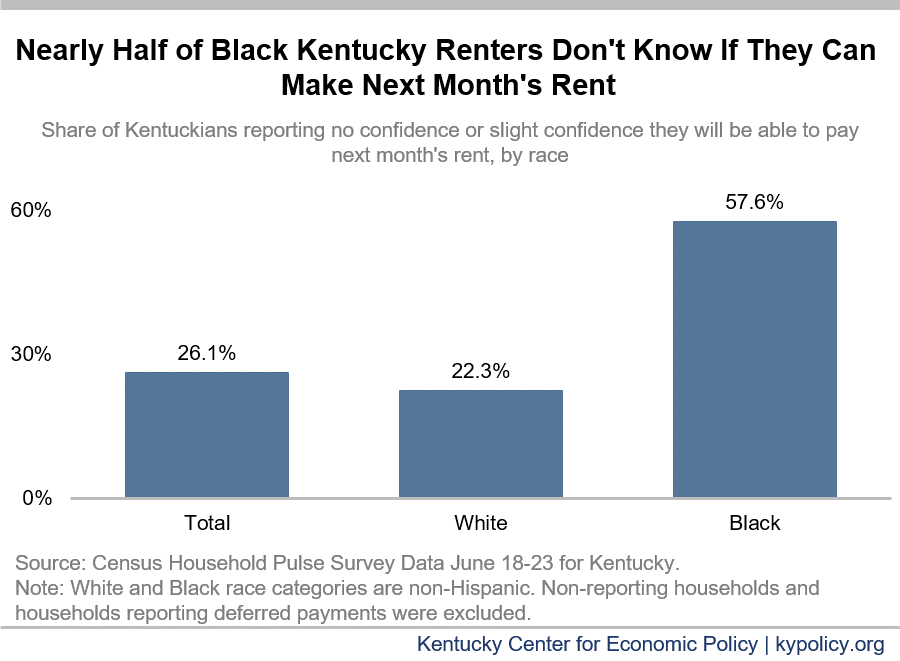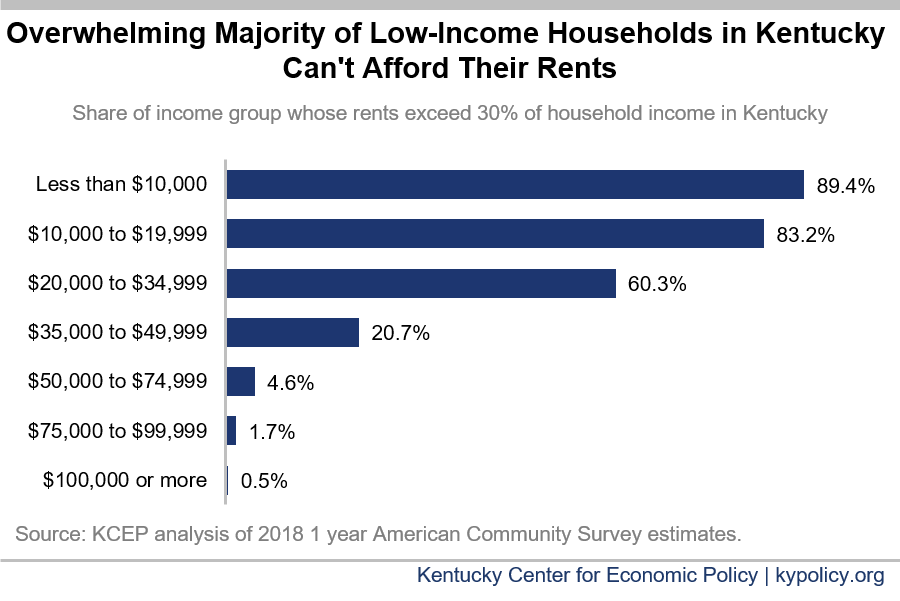According to new weekly Census data, 26.1% of all Kentuckians who rent their homes have no confidence or only slight confidence that they will be able to pay next month’s rent. Demonstrating how the pandemic is disproportionately impacting people who already regularly confront structural economic barriers, 57.6% of Black renting Kentuckians have slight to no confidence they’ll be able to make rent. This vulnerability is dangerous to us all. Stable housing is both a key component of preserving families’ economic security, and a critical public health measure to reduce the spread of COVID-19. While a statewide moratorium on evictions offers some temporary protection, it is imperative that Congress act now to extend the unemployment insurance booster (set to expire July 25) that is currently helping people make ends meet.
Nearly a third of Kentucky households rent their homes. Even before the pandemic, households with low incomes faced unaffordable rents. According to the longstanding definition of affordability set by the U.S. Department for Housing and Urban Development (paying 30% or more of the family budget on housing), 45.6% of Kentucky renting households already had difficulty paying their rents prior to the pandemic. When broken out by income groups, low-income renters are far more likely to pay unaffordable rents, while also having less in savings to fall back on. Given the widespread job losses and economic distress caused by the pandemic, many Kentucky families are now on the edge of homelessness.
A state moratorium on rent-based evictions will last as long as the COVID-19 state of emergency lasts, protecting families and individuals to some degree from homelessness during the pandemic. However, under the moratorium, Kentucky renters are still responsible for their rent and any other renter obligations, meaning even if people stay in their homes for now, they may still be hit with several months’ rent obligation or else face eviction once the state moratorium is lifted.
Ensuring people are able to stay current on their rent now is critical to avoiding that scenario. For Kentuckians who have lost work because of the pandemic, the emergency federal boost to unemployment benefits – $600 in weekly benefits known as Pandemic Unemployment Compensation (PUC) – has been essential to making ends meet. In fact, according to the Census survey, an estimated 23% of renting Kentuckians are currently using unemployment benefits including PUC to make rent and pay for other living expenses. With the expiration date for these benefits looming near, Congress must extend them until it is safe to go back to work and jobs return to the state. Doing so will help renters, assist homeowners not covered by the state’s eviction moratorium who still have to make mortgage payments and stimulate the economy.
The House-passed HEROES Act would extend PUC payments another six months. It would also provide $100 billion in rental assistance and expand the CARES Act eviction moratorium, but the Senate has yet to take it up. Whether the HEROES Act specifically, or similar measures in a different bill, the Senate must provide significant financial aid and protections soon. Unemployment is expected to remain high through next year and a swell of homelessness would wreak havoc on the state’s economy and put Kentuckians health and well-being at great risk.





